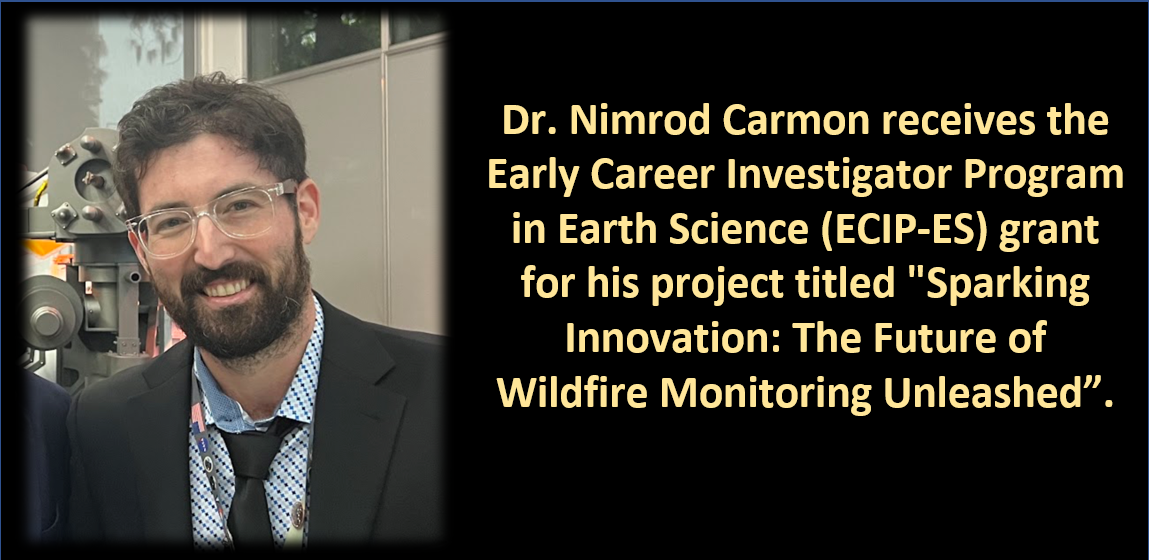Dr. Nimrod Carmon receives the Early Career Investigator Program in Earth Science (ECIP-ES) grant for his project "Sparking Innovation: The Future of Wildfire Monitoring Unleashed."

Dr. Nimrod Carmon, an emerging scientist from the Jet Propulsion Laboratory and PI for the LCLUC program, has received the Early Career Investigator Program in Earth Science (ECIP-ES) grant for his project "Sparking Innovation: The Future of Wildfire Monitoring Unleashed." This ECIP-ES award builds upon the foundation established by a preceding LCLUC award but with a distinct emphasis on the utilization of hyperspectral data for fire risk estimation.
Dr. Carmon's research is aimed at the precise quantification of wildfire-related vegetation characteristics, deploying algorithms that incorporate semi-physical models for simulating vegetation canopy reflectance, integrated with high-fidelity atmospheric radiative transfer models (RTMs) that separate direct from diffuse radiation, all within a sophisticated radiance inversion optimization framework based on optimal estimation methodologies.
This methodological enhancement is designed to markedly improve accuracy and predictive power in identifying plant traits within forests at elevated wildfire risk. By harnessing hyperspectral remote sensing capabilities, in conjunction with data from the EMIT instrument on the International Space Station, Dr. Carmon's approach signifies a substantial shift in wildfire monitoring paradigms. The application of advanced semi-physical models alongside empirical hyperspectral remote sensing data facilitates a comprehensive understanding of factors influencing wildfire susceptibility in forest ecosystems. Moreover, Dr. Carmon's contributions are instrumental in advancing predictive models for wildfire risk and informing more effective wildfire management and mitigation strategies. Through the application of leading-edge radiative transfer simulations and hyperspectral imagery, his work is essential for identifying environmental conditions conducive to wildfire ignition and spread, emphasizing the novel integration of hyperspectral data to expand upon the foundational work initiated under the LCLUC award.